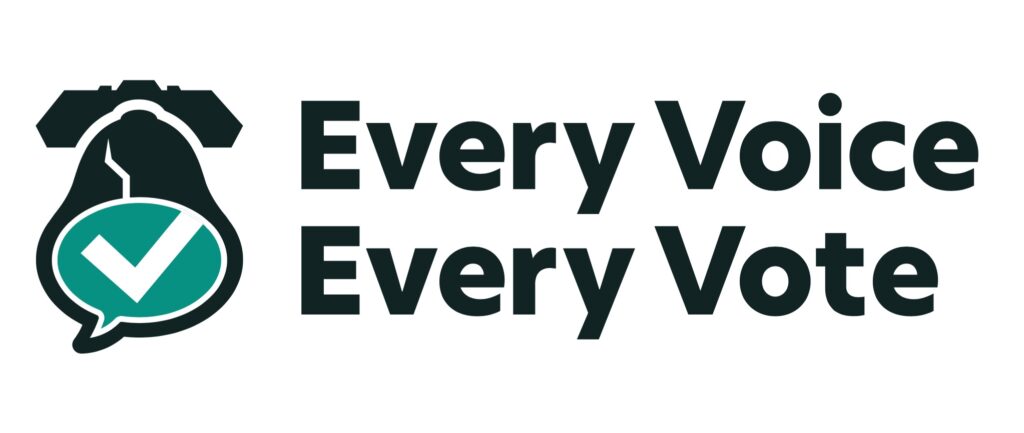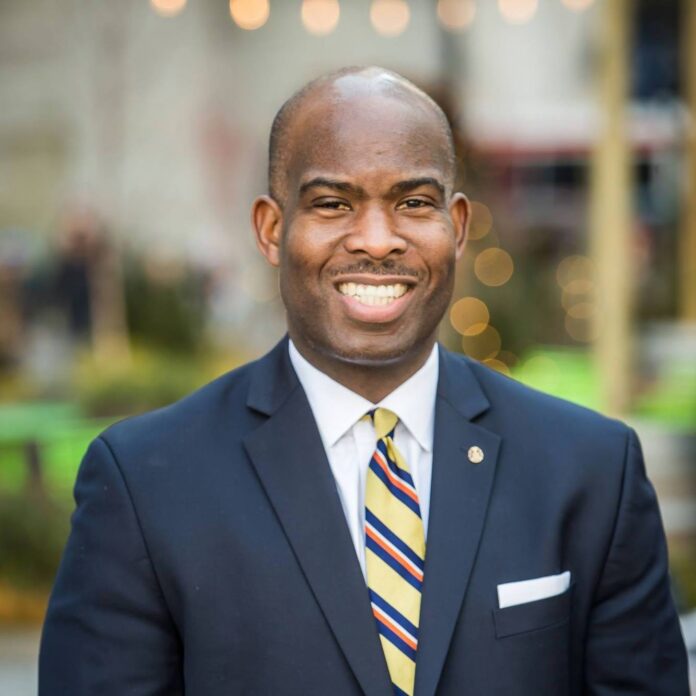Editor’s Note: Derek S. Green withdrew from the mayor’s race on April 13.
After serving two terms as city-councilmember-at-large, Derek S. Green aims to take the top job in Philadelphia: Mayor. According to his mayoral campaign website, Green is committed to combating gun violence and addressing public safety concerns in the city. This includes establishing the first Gun Violence Suppression Division and enhancing the work of anti-violence organizations.
In the coming weeks, PGN will be publishing interviews with the mayoral candidates in the order in which they were completed. Some responses from Green’s interview, which took place on Dec. 23, 2022, have been edited for length and clarity.
What are the challenges facing Philadelphia’s LGBTQ community, and how will you address them?
Well, when I think about some of the challenges in the community, some of those challenges are unfortunately coming from a federal level. If you look at some of the decisions that are being made by our Supreme Court, that gives me some real cause [for] concern. I’m glad that Congress in the Democratic-controlled House and Senate made some steps to make marriage legal from a federal legal perspective, because I was concerned in reference to the most recent Supreme Court case, and the dicta that was stated by Supreme Court Justice [Clarence] Thomas. So I think that’s an issue of concern.
But I think some of the issues that impact the community impact all the communities [such as] issues of public safety. That’s something that’s really concerning to people of all backgrounds, especially as it relates to public safety regarding transgender women. People are just concerned about being safe in our city, and that’s all neighborhoods. That’s impacting all communities in the city of Philadelphia.
As a former assistant district attorney, I’m concerned about the level of violence I see in the city as it relates to various people of various backgrounds. I do believe that coming out of the last administration — the Trump administration — the increase of hate crimes has also been a challenge for various communities, as well as this community. So I’m concerned about how that plays out in our city. But we need to make sure that everyone in the city of Philadelphia is safe and that we have a city that welcomes all people — regardless of orientation or how you want to express yourself — and make sure everyone has a great quality of life in Philadelphia.
What LGBTQ community leaders and organizations have you worked with in the past?
My law-school classmate — who’s now running for my old position — Rue Landau, is someone that I’ve worked with over the years, especially in reference to legislation. When I came to city council, there was a significant issue [during the summer of 2016] where there was a lot of discrimination that was occurring in bars and other establishments for men of color in the community. So we addressed legislation in the charter and in the Human Relations Commission. If you’re a business that’s continuing to discriminate against people — regardless of orientation — and you continue to persistently do that, then we can remove your business license. So that was legislation that came out of incidents that were occurring in the [LGBTQ] community in reference to discrimination against men of color, who are frequenting certain restaurants and businesses. We want to make sure that we have a city that’s going to be inclusive of all people — even within the LGBTQIA community [and that they’re] not discriminated against even within that community. That was something that was not being addressed. So I’ve worked with Rue on that legislation.
But I also [worked on] other legislation as a former National President of Democratic Municipal Officials and also while being an executive committee member of the National League of Cities. I got a chance to visit cities and have relationships with councilmembers, and all the mayors from all around the country, and it always struck me because when we would have our board meetings for the NLC — or National League of Cities — or other organizations, they would say “councilmember,” where here in Philadelphia, we were still using “councilman” and “councilwoman.” So I introduced legislation that actually went to the voters of the city of Philadelphia — who approved this in May of 2019 — that we’re going to change the charter to get rid of antiquated language like “councilman” and “councilwoman” and move it to “councilmember.”
In addition, I’ve worked on legislation over the years to remove those same types of perspectives in our code. For example, if you’re applying for senior citizen benefits, [the application] was still using words like “husband” and “wife.” So we wanted to introduce legislation to make that gender neutral. Also, [I worked on] making sure that we have less binary language in our code and more non-binary language in the code. So I’ve been pushing that type of legislation throughout the Philadelphia code because we need to make sure that our city is inclusive of all people, regardless of your background, orientation or how you express yourself. We need to make sure that our code and our charter are reflective of this society and the type of city that we want to be. And we’re going to truly be a welcome city: The city of brotherly love and sisterly effectiveness.
In light of the numerous mass shootings, including at Club Q in Colorado and the many mass shootings in Philadelphia, what confluence, if at all, do you see between the issues of hate crimes and gun violence? And how does your approach to gun control address that?
I think there has been an increase in hate violence against people of all different backgrounds — of African Americans, people of Jewish faith, people of the LGBT+ community. Although we don’t have the ability to do the gun control laws that we should in the city of Philadelphia because we’re preempted by the Commonwealth of Pennsylvania. So I introduced legislation calling for body armor registration, basically stating that if you’re purchasing body armor in the city of Philadelphia, we should be able to have a registry for that. And if you are a manufacturer selling body armor to someone in the city of Philadelphia, we should also get that type of information as well. To me, that’s a way of trying to get to some of the gun regulation and registration that we should have.
I’ve read in articles — in both the New York Times and also other papers from around the country — that increasingly those people who are engaged in these mass shootings tend to wear body armor. So although we can’t do some of the registration that we should and regulations for high-capacity weapons in the city of Philadelphia, however, the body armor legislation — to me — is one way to find a backdoor way of getting to that information, because increasingly, you’re seeing people that are doing these heinous crimes wearing body armor. It’s a concern that I had, when you see the increase of the number of guns in just the Commonwealth in our country and now the issues of ghost guns — where people are manufacturing guns — is an issue as well. But the concern about hate crimes is definitely something that’s increasing in our nation when you look at all the mass shootings that have occurred from multiple communities in the nation.
How will you address the issue of violence against trans women, specifically trans women of color?
Well, as a former assistant district attorney and a prosecutor, I know there’s been some concern in reference to the progress that’s being made on some of the investigations regarding trans women of color by the district attorney’s office. I think we need to be more open and transparent and have these types of conversations in communities about what’s been occurring. We want to make sure that everyone is safe, regardless of your background, regardless of how you express yourself. In our city, we need to make sure that those issues of hate are not impacting certain communities. I do have a concern of — just like we talked earlier — about the increase in hate crimes, but it also tends to be an increase in hate crimes especially for trans women of color.
We’ve got to make everyone in the city of Philadelphia safe, and feel that they’re safe in our city, and not just some communities, but all communities. And having a background as a former assistant district attorney here in the city of Philadelphia as well as serving as the assistant deputy attorney general in Delaware, I have an understanding of the criminal justice system and I have some ideas of how we can make people safer in the city of Philadelphia
Why should the LGBTQ community give you their vote?
Well, when I look at the issues in the city of Philadelphia — and we have major issues that’s impacting everyone of all perspectives — public safety is a big issue. I believe that Philadelphia should expect more and deserve better from our city. And we have to make people feel safe again. That’s something that has not been occurring and that’s people from all backgrounds, all communities. So when I think about the issues confronting the city of Philadelphia — public safety being one — as a former prosecutor, we need someone who’s had a history in fighting crime to fight the crime and gun violence happening in Philadelphia.
Having been elected twice as an at-large-member of city council, I’ve been to every community in every neighborhood in the city of Philadelphia. [I’ve also been] a former small business owner, someone who has tried to invite equity and inclusion to the legislation in city council. And I’ve been a national leader as a National President of Democratic Municipal Officials, and also a member of the National League of Cities executive committee. So when people in the city of Philadelphia are looking for who should be the next leader of our city, it should be someone who has the vision, experience and temperament to lead our city forward but also have some understanding of some of the issues and challenges impacting the vast communities of the city of Philadelphia. I think the legislation I’ve done in reference to discrimination issues that have happened, trying to address that in this community, as well as [my efforts in] trying to make the code and the charter more welcoming are reasons why LGBT+ communities should consider voting for me as the 100th mayor of the city of Philadelphia.
For more information about Derek S. Green, visit derekformayor.com.

